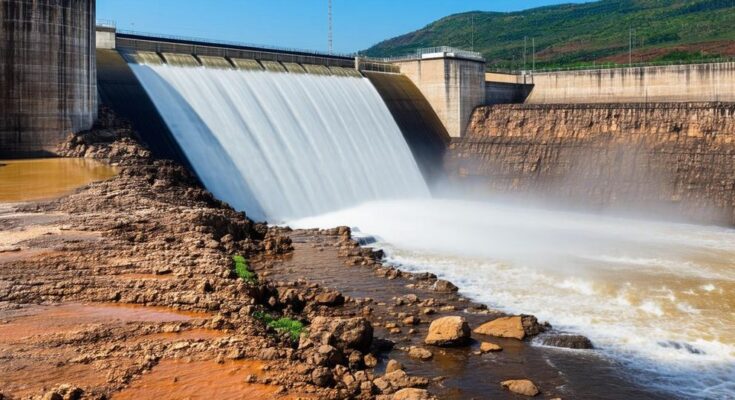Zambia and Zimbabwe are experiencing power cuts of up to 17 hours a day due to drought conditions reducing the water levels in the Kariba Dam, which is critical for hydroelectric power generation in both countries.
The neighboring countries of Zimbabwe and Zambia are currently grappling with severe electricity shortages as a result of an ongoing drought that has significantly depleted the water levels of the Kariba Dam. This dam, which is recognized as the largest man-made lake globally, plays a crucial role in supplying hydroelectric power to both nations. With power cuts reaching as much as 17 hours per day, the citizens and industries across Zimbabwe and Zambia are facing stark challenges due to the reduced capacity for electricity generation. The situation highlights the critical interdependence of water resources and energy generation in these regions.
The Kariba Dam, a cornerstone of energy production for both Zimbabwe and Zambia, has been severely affected by recurring drought conditions. Water levels that are essential for hydroelectric power generation have dropped alarmingly, compromising the ability of these countries to produce sufficient electricity. Historically, these nations have relied heavily on hydroelectric energy, making them particularly vulnerable to climatic fluctuations and water shortages. This ongoing crisis not only threatens the livelihoods of individuals but also hampers economic activities, leading to widespread concern regarding future energy stability and water resource management in the region.
In summary, the drought affecting the Kariba Dam has resulted in significant power shortages for both Zimbabwe and Zambia, with blackouts lasting up to 17 hours each day. This crisis underscores the urgent need for both countries to explore alternative sources of energy and improve water management strategies in order to mitigate the impact of climate change and ensure energy security moving forward.
Original Source: www.france24.com




